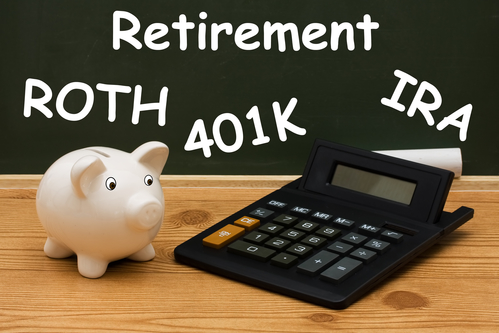 {3:18 minutes to read} My colleague and fellow mediator, BJ Mann, who practices in Rochester, NY, has written as comprehensive, cogent and concise a primer on the basics of retirement plans for divorcing couples as I have ever read. She graciously allowed me to post it on my site for you, dear reader. After all, why reinvent the wheel? I’ve broken it down into 4 posts for easier digestion.
{3:18 minutes to read} My colleague and fellow mediator, BJ Mann, who practices in Rochester, NY, has written as comprehensive, cogent and concise a primer on the basics of retirement plans for divorcing couples as I have ever read. She graciously allowed me to post it on my site for you, dear reader. After all, why reinvent the wheel? I’ve broken it down into 4 posts for easier digestion.
Divorce and 401(k)s and IRAs – Part 1
Funding retirement is one of the hottest topics there is in personal finance today. Add a divorce to the mix, and the discussion about retirement accounts between separating spouses becomes even more emotional and confusing.
It is always hard to separate assets. In truth, both parties end up with less than what they had together, and it is hard to feel safe and OK. Adjusting to a new financial and emotional situation takes courage and acceptance and a willingness to let go of the struggle.
Let’s start by reviewing the three main types of retirement funding that exist today:
- Defined-benefit pensions in which the person’s employer funds the whole thing. This promises the employee a specified monthly benefit at retirement. The employee has no say in the amount invested or paid. Please see my post, “Anything But My Pension,” for details on how pensions are handled in divorce.
- Defined-contribution plans. These include 401(k), 403(b), and 457 plans. In these plans, the employer does not promise a specific amount of benefits at retirement. The employee or the employer (or both) contribute to the employee’s individual account under the plan, sometimes at a set rate, such as 5 percent of earnings annually. These contributions are invested on the employee’s behalf. The employee has control of the how the money is invested. However, investment options are limited to those that have been made available within the fund.
- Individual Retirement Accounts (IRAs): These are opened by individuals and are not connected to any employer plan. There are 4 types: Traditional, Roth, SEP, and SIMPLE. To make things more confusing, the law does allow employers to make contributions to some of these plans.
It’s important to have a list of all retirement-related accounts owned by you and your spouse to work with during the divorce process. The list should indicate the type of account and the current balance. If you are not sure of either, contact your employer or the financial planner that set up your accounts to get this information.
In Part 2, we will look at each of the last two types of retirement accounts in more detail.
 BJ Mann
BJ Mann
Divorce • Family • Workplace Mediation
1121 Winton Road South
Rochester NY 14618
Office: 585.234.8740
Web Site: www.bjmediationservices.com


![He Said No to Mediation — and Lost More Than Just Money [VIDEO]](https://divorceandfamilymediationcenter.com/wp-content/uploads/2025/05/1747931592background_0001-500x383.png)
![Bringing Hope and Optimism to Mediation [VIDEO]](https://divorceandfamilymediationcenter.com/wp-content/uploads/2025/04/IMG-Bringing-Hope-and-Optimism-to-Mediation-500x383.png)
![Key Provisions in Every Marital Settlement Agreement [VIDEO]](https://divorceandfamilymediationcenter.com/wp-content/uploads/2025/04/1744321234background_0003-500x383.png)
![Why Boilerplate Language Matters in Your Matrimonial Settlement Agreement [VIDEO]](https://divorceandfamilymediationcenter.com/wp-content/uploads/2025/04/1743629103background_0003-500x383.png)
Leave A Comment